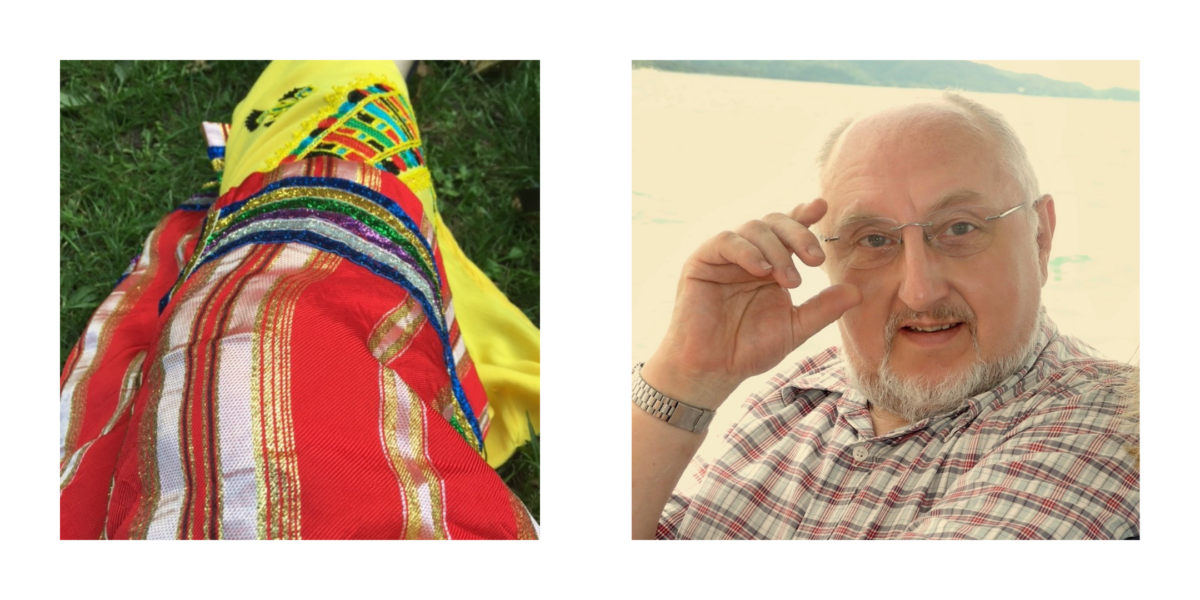ACTO directors Olivia Djouadi and Adrian Rhodes reflect on their different experiences
National Refugee Week takes place the 19 – 25 June, in recognition of World Refugee Day on 20 June. The week-long events are a festival celebrating the contributions, creativity and resilience of refugees and people seeking sanctuary.
In celebration of this event, ACTO invited two directors of the Board to write about their personal experiences. Here are their respective stories.
Olivia Djouadi
Olivia Djouadi is a qualified psychotherapist and a decade ago married a refugee from North Africa. She shares her experience of being married to a refugee including the political issues they faced around people’s attitudes towards immigrants and immigration.
Olivia: I met my partner and we fell in love straight away – indeed, four months later we were married.
Being now married to a refugee, I was a bit taken aback by the views expressed by many people about immigrants. At the time, I was a student doing an MA in British politics and I was hoping to work in Parliament. I was stunned that so many negative views existed still to this day, particularly given our experiences from history.
It was a very difficult time for me. I was studying for my master’s and during that time they sent my husband back to a war zone which Britain deemed safe. My tutors gave advice but I was also told by others why we were not accepted – I was female, I had a chronic illness, my surname was my married name, and I didn’t have full time work as a student.
We were given a meeting in Tunis as my partner’s country was in a war zone; so we both flew there. Each of us had separate and very intrusive interviews that were shocking. This upset us both and we began to realise our marriage may be over. My American friends who were married to British people in the UK never seem to have this treatment. Fortunately, the interview went in our favour and after 6 months my husband was able to return to the UK to live with me.
A change of direction – working at a refugee centre
I decided to give up my politics degree and I went in a different direction working in refugee centres in the UK in SE London.
I also recall one particular incident. At the refugee centre where I worked the then home secretary came for a visit. I was very pregnant at that time. I saw red and went rushing over as I wanted to ask if he was going to send my babies father back to a war zone. Thankfully a colleague stopped me and led me away.
My partner found work and met all the requirements asked of him. Many however didn’t from those I supported at the refugee centres. I enjoyed my work though; I found that I had an aptitude for helping people who had been living in war zones who had what looked like Complex PTSD. Looking back now with my experience and training as a psychotherapist, I know now this is what they had.
Another concern at the time was after 9/11 in America anyone who looked Muslim received unwarranted comments; this continued to when our kids went to secondary school. The events of 7/7 in London was another challenging period – but pointing towards 3.7 million Muslims in the UK is not fair and is discrimination.
Adrian Rhodes
Adrian Rhodes is the past chair of ACTO, a qualified psychotherapist since the 1980s as well as a Clergyman in the Church of England. In 2022 following the invasion of the Ukraine, his family invited a Ukrainian refugee family to stay at their home in Manchester.
Adrian:
When the war broke out in February last year, a psychotherapist colleague in the Ukraine sent out an appeal asking for someone to host his family whilst he stayed behind. My wife and I had the space to share in our home – and it seemed to us to be a very small thing to do – helping other people in such a tragic situation.
Arrival: first experiences of life in the UK
Six weeks later the mother and her two children – a son who is 11 years and a daughter aged 9 arrived to stay with us in Manchester. They have now been with us for a year. Whilst their paperwork to enter the UK was being reviewed, they stayed with another psychotherapist colleague in the Netherlands. On reflection, I think that this ten week delay in arriving here helped them a bit to get over the initial shock of having to leave their husband and Dad at the Polish border – on the day of his birthday.
The UK represented a place of safety, nevertheless not surprisingly this whole experience has been a challenge for all the family. The children struggled at first, especially the son, and still talk of their experiences of the war. However they can still see their dad on a daily basis online – whilst not the same, it does keep them in contact.
Fortunately we got the two children into school very quickly and they are now flourishing.
Language has been a problem for the mum and the son. But the daughter’s English (she could speak a little of the language when she arrived) has been very good from the start; indeed, she is now fluent.
Understanding and dealing with cultural differences
One of the other challenges for them has been to get used to the different pattern of life here in the UK, and the fact that they are missing Ukrainian customs.
Holding onto their culture and identity is clearly important to the family and they have made a number of contacts with the Ukrainian community in Manchester, which is historically strong.
For us, my wife and myself, it’s been a delight having them.
What of the future?
The future obviously remains troubling and very uncertain. I feel that their main challenge – and that of many Ukrainians living here perhaps – is how to move on. It’s not easy living in someone’s home. Culturally the UK and the Ukraine are very different in many ways; and views differ, for example, on the appropriate roles and tasks for men and women. I think it was quite surprising for the mother to see me washing up as a man!
They are enjoying their life with us, and we really enjoy spending time with them. However at some point they will face the issue that refugees all face to enable to stay in the long-term, for example getting a job, building up money to pay a deposit for renting a properly by themselves.
The schools the children currently attend are good. How do they move on though? This may mean need to move schools, further disruption to their education.
Finishing on a positive note, the response from the local community has been incredible. On Christmas Day we had the doorbell ringing several times and presents were left from people we did not even know. Also, local people are inviting them to birthday parties and the family have received donations of an iPad and the like. It has been wonderful.

